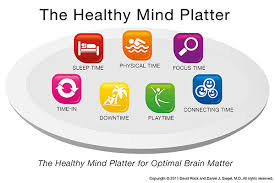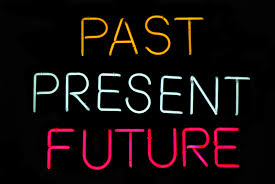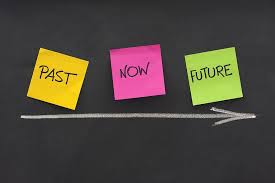Getting the best from Coaching; a client perspective
This is an article for existing clients and potential new clients to give them some ideas on what coaching is, what to expect from it and how to get the best from the coaching experience. This is based on many years of working with a myriad of different clients with different needs from different sectors. I strive wholeheartedly to make the coaching experience a positive and fulfilling one for clients, aiming to emotionally intuit as well as rationally think the ways that individuals get the best from the coaching experience.
What is Coaching?
Coaching is a form of learning where a coach supports a client to undergo learning and personal growth in a way that benefits them. Coaching is normally a series of conversations one person has with another at a series of sessions, as well as some contact in between (this depends on how the coach works: I encourage some contact in between sessions to help motivation as they are often 3-4 weeks apart). The coach intends to create conversations that will benefit the client in a way that is cathartic to their learning and progress, buts its very much a “dual alliance” between client and coach.
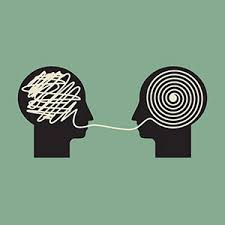 My favourite definition of coaching is by Julie Starr: “Coaching is a conversation with a purpose, also a space where someone can think through what is going on for them and an opportunity to do ‘great thinking’’. One of the key principles that separates it from therapy or counselling is that the client is in a resourceful state. He or she has not come to be ‘fixed’ but has the ability to resolve his or her own situation with the support of the coach. Coaching is about change. Its purpose is to help the client become more effective in whatever they are working on.
My favourite definition of coaching is by Julie Starr: “Coaching is a conversation with a purpose, also a space where someone can think through what is going on for them and an opportunity to do ‘great thinking’’. One of the key principles that separates it from therapy or counselling is that the client is in a resourceful state. He or she has not come to be ‘fixed’ but has the ability to resolve his or her own situation with the support of the coach. Coaching is about change. Its purpose is to help the client become more effective in whatever they are working on.
In terms of the length of coaching work, whilst the requirements for each project should be considered on a case by case basis, coaching focuses on some specific challenges and typically a coaching relationship lasts for 6-8 sessions over several months with sessions being typically 4 weekly apart. In some cases the client can re-engage the coach to do some follow up coaching periodically over a longer term.
Why do people have coaching?
People enlist the services of a coach because they want to learn new ways of thinking through and approaching situations.
 A coach uses a combination of observation, questioning, listening and feedback to create a conversation that’s rich in insight and learning. For the client they typically develop a greater self awareness and appreciation of their own circumstances along with a willingness to be proactive and undertake actions. In addition, they will also create new ways to resolve issues, produce better results and generally achieve their goals more easily.
A coach uses a combination of observation, questioning, listening and feedback to create a conversation that’s rich in insight and learning. For the client they typically develop a greater self awareness and appreciation of their own circumstances along with a willingness to be proactive and undertake actions. In addition, they will also create new ways to resolve issues, produce better results and generally achieve their goals more easily.
Common benefits people experience from coaching include:
- Improved sense of direction and focus
- Increased knowledge of self/self-awareness
- Improved ability to relate to and influence others
- Increased motivation and “follow through” on things
- Improved personal effectiveness
- Increased resourcefulness/resilience, e.g. ability to handle change
What you can expect from me as your Coach
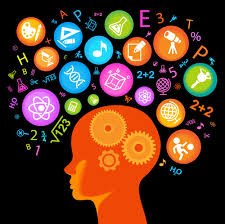 The role of a coach provides a kind of support distinct from any other. I aim to focus solely on your situation with the kind of attention and commitment that you wouldn’t get in day to day interactions with people. I will listen to you, with a genuine curiosity to understand who you are, what you think and generally how you experience the world. During conversations, I will encourage you to rise to challenges (and sometimes challenge you!), overcome obstacles and move into action.
The role of a coach provides a kind of support distinct from any other. I aim to focus solely on your situation with the kind of attention and commitment that you wouldn’t get in day to day interactions with people. I will listen to you, with a genuine curiosity to understand who you are, what you think and generally how you experience the world. During conversations, I will encourage you to rise to challenges (and sometimes challenge you!), overcome obstacles and move into action.
Because the relationship is based on trust and openness, the content of our discussions will be confidential. Where a third party (perhaps an employer) has initially requested the coaching for you, I will agree with you the best way for us to keep them updated but not any of the confidential content of the sessions.
I do ask that at the start of each piece of coaching work that we agree a coaching plan and contract. This sets out the main objectives of the coaching work, as well as the way we are going to work together. It is also important for us to review progress at the mid-point to assess if coaching is achieving the desired outcomes, and any alternative interventions that could be offered.
What I as a Coach expect from you
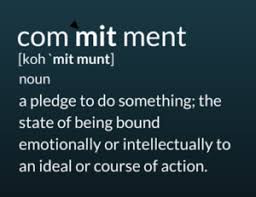 I look for you to stay committed to the coaching process. That means showing up for sessions (face to face or virtual), taking your own notes where appropriate (though I always write up and send an overview of the session and actions) and to keep any agreements you make during sessions.
I look for you to stay committed to the coaching process. That means showing up for sessions (face to face or virtual), taking your own notes where appropriate (though I always write up and send an overview of the session and actions) and to keep any agreements you make during sessions.
I look for you to be open to the potential of coaching. That means contributing to conversations openly and honestly. For example, if something isn’t working, I need to know. If you have concerns or problems, it is important to voice them. The strength and power of coaching relates strongly to the level of openness and trust between us.
I hope for clients to develop a blend of strengths to help coaching work (with my support) that includes things like building self-awareness, the ability to challenge self, to set goals and take action, to be persistent and to work on your self-belief to move forward.
Some tips on getting the best from the Coaching experience as a client
Based on several years of client experience:
- Don’t “back end” actions if you can possibly help it; some of the clients I have worked with (where coaching has worked best) have booked time out/ set time aside every week to both work on actions from previous sessions and/or reflect on the coaching work and any changes they need to make
 Consider creating a Coaching journal; several clients have done this and find it enhances the learning and the follow through from sessions. This can be as simple as buying a new notebook that you write things in during a typical week. One client I worked with found time at the end of a working week to use the writing as a reflective process to look at progress on the areas they were working on
Consider creating a Coaching journal; several clients have done this and find it enhances the learning and the follow through from sessions. This can be as simple as buying a new notebook that you write things in during a typical week. One client I worked with found time at the end of a working week to use the writing as a reflective process to look at progress on the areas they were working on- Encourage informal 360 feedback from others around you. 360 feedback is a formal HR tool that is used in many organisations formally, but it doesn’t have to be onerous to do informally. One client I am working with asked these simple questions of others they worked with as colleagues: Have you noticed any difference in me and the way that I work since xx date? Can you offer one example of something I do that you appreciate and would like me to build on? Can you offer one example of something I do that you find unhelpful and that you would like me to do differently? Is there any other feedback you would like to take this opportunity to give?
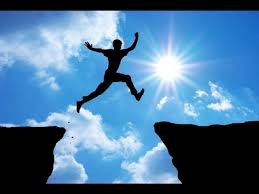 When you have a session coming up, ask yourself what you want from the session; what would make it a really good session? (see example preparation template below). Sometimes coaching happens “in the moment” but sometimes it is about thinking something through beforehand that you want to bring up; one client writes and sends through a reflective piece in preparation for the session a few days beforehand that we use to reflect on during the session
When you have a session coming up, ask yourself what you want from the session; what would make it a really good session? (see example preparation template below). Sometimes coaching happens “in the moment” but sometimes it is about thinking something through beforehand that you want to bring up; one client writes and sends through a reflective piece in preparation for the session a few days beforehand that we use to reflect on during the session- Take time out for your own review of your progress perhaps a few sessions into the project; how do you think the coaching is going? What is working for you? What are you struggling with? Is there anything you would like me to do differently? (see below possible templates to help support this)
- Go back periodically to the Coaching plan you set out at the start of the coaching work; how far do you think you have come since then? Are your overall objectives the same or different since the start of the coaching work? (they often change during the coaching project)
- Are there any learning resources or “coaching tools” you have picked up along the way that you have found illuminating and useful? These might be things like Psychometric tests, career review exercises or psychological exercises around areas like self-confidence; it might be worth creating a Learning folder for these to come back to at periodic intervals in the future. For example, it could be helpful to understand how behaviour change works for individuals through something like the “stages of change” (or transtheoretical) model to help understand that recidivism or slipping back is inherent in any change process before we break through to make sustainable change
- Remember the cost-reward ratio; a client said to me recently of coaching: “what you get out of it depends on what you put into it”
Possible processes and paperwork that may help
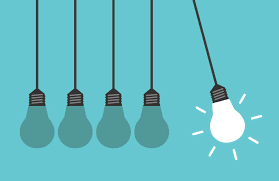 I know that coaching processes and paperwork aren’t everyone’s cup of tea, and I have had plenty of coaching projects that have involved nothing other than a Coaching plan/contract and session notes. However, processes and paperwork can help at times to structure things a little as milestones of progress or reflective learning.
I know that coaching processes and paperwork aren’t everyone’s cup of tea, and I have had plenty of coaching projects that have involved nothing other than a Coaching plan/contract and session notes. However, processes and paperwork can help at times to structure things a little as milestones of progress or reflective learning.
General forms
COACHING PREPARATION FORM: a simple reflective exercise that encourages to think about whats happened since last session; positives., challenges and any particular focus for the session coming up
Blank Reflection Note a simple reflection process of some key questions about an experience and what you have learnt
Overall Coaching project review approaches
These are a few approaches to stepping away from the day to day work of coaching, and reflecting on overall progress:
WHAT HAS CHANGED FOR ME IN COACHING: This is a simple review template that provides an opportunity to reflect on where you are as a coaching client by looking back to when you started, where you are now, and what challenges still remain
Coaching Review questionairre 2020: a detailed questionairre that enables you to assess your progress on a periodic basis including areas like career, finance, health and development.
Tolerations: Sometimes when people are feeling out of control just being able to tick or give attention and deal with bits and pieces on the list helps. This is a list of “100 tolerations” to review
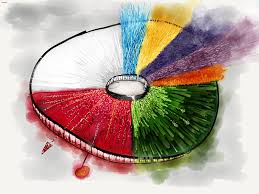 Retirement Wheel of Life
Retirement Wheel of Life